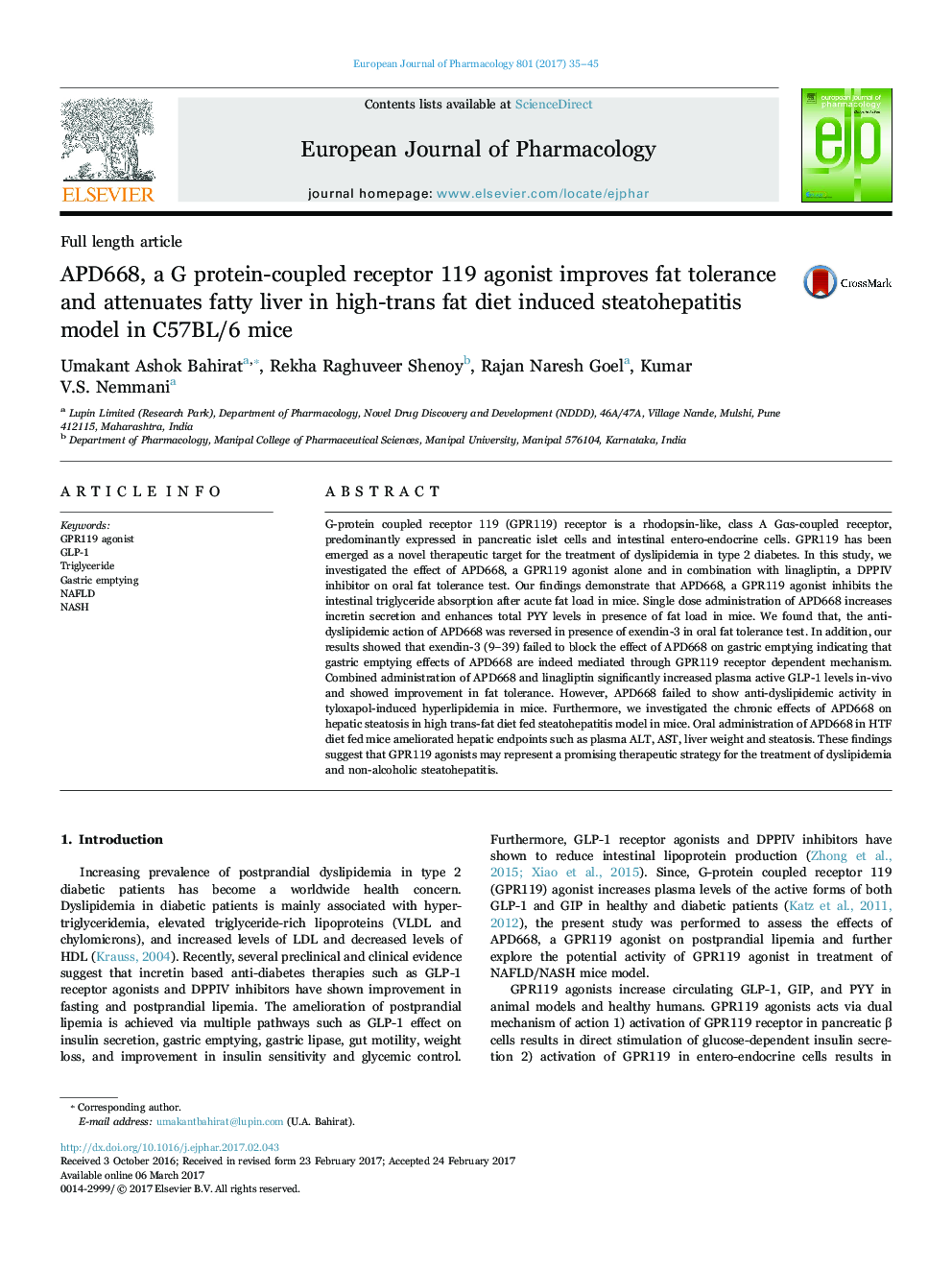| Article ID | Journal | Published Year | Pages | File Type |
|---|---|---|---|---|
| 5554606 | European Journal of Pharmacology | 2017 | 11 Pages |
G-protein coupled receptor 119 (GPR119) receptor is a rhodopsin-like, class A Gαs-coupled receptor, predominantly expressed in pancreatic islet cells and intestinal entero-endocrine cells. GPR119 has been emerged as a novel therapeutic target for the treatment of dyslipidemia in type 2 diabetes. In this study, we investigated the effect of APD668, a GPR119 agonist alone and in combination with linagliptin, a DPPIV inhibitor on oral fat tolerance test. Our findings demonstrate that APD668, a GPR119 agonist inhibits the intestinal triglyceride absorption after acute fat load in mice. Single dose administration of APD668 increases incretin secretion and enhances total PYY levels in presence of fat load in mice. We found that, the anti-dyslipidemic action of APD668 was reversed in presence of exendin-3 in oral fat tolerance test. In addition, our results showed that exendin-3 (9â39) failed to block the effect of APD668 on gastric emptying indicating that gastric emptying effects of APD668 are indeed mediated through GPR119 receptor dependent mechanism. Combined administration of APD668 and linagliptin significantly increased plasma active GLP-1 levels in-vivo and showed improvement in fat tolerance. However, APD668 failed to show anti-dyslipidemic activity in tyloxapol-induced hyperlipidemia in mice. Furthermore, we investigated the chronic effects of APD668 on hepatic steatosis in high trans-fat diet fed steatohepatitis model in mice. Oral administration of APD668 in HTF diet fed mice ameliorated hepatic endpoints such as plasma ALT, AST, liver weight and steatosis. These findings suggest that GPR119 agonists may represent a promising therapeutic strategy for the treatment of dyslipidemia and non-alcoholic steatohepatitis.
